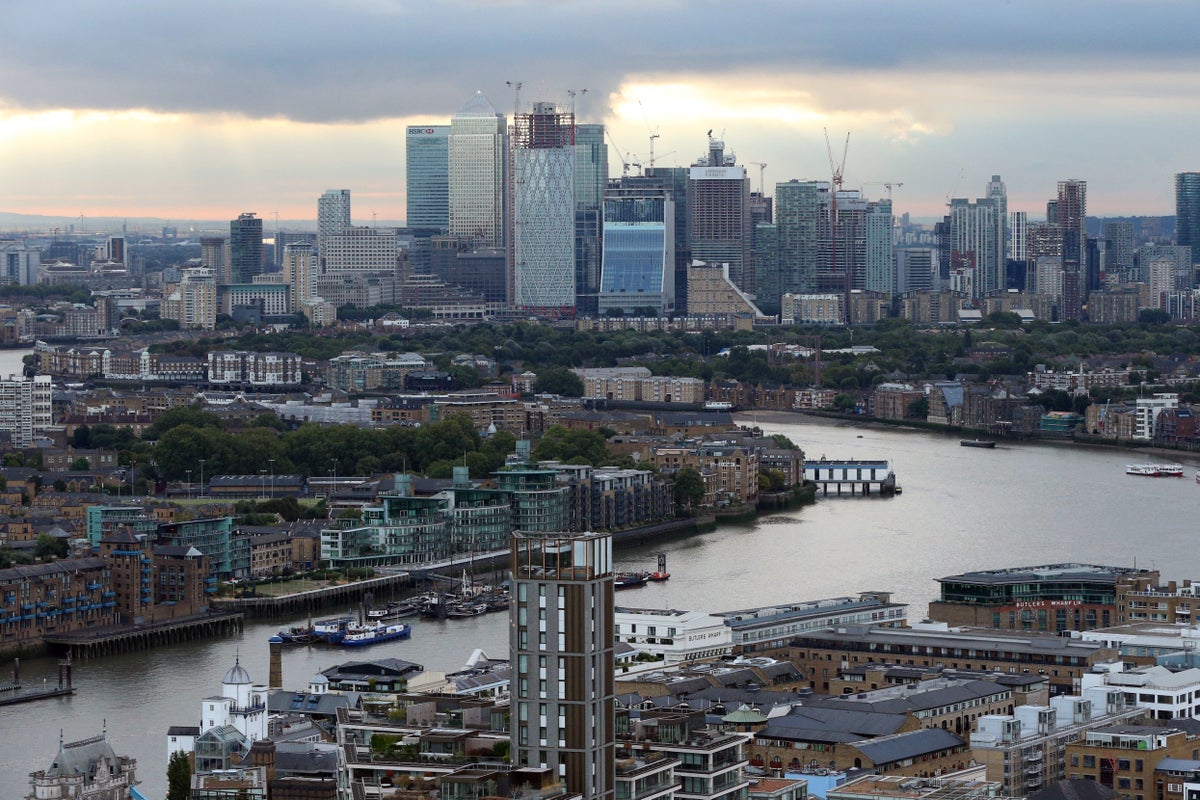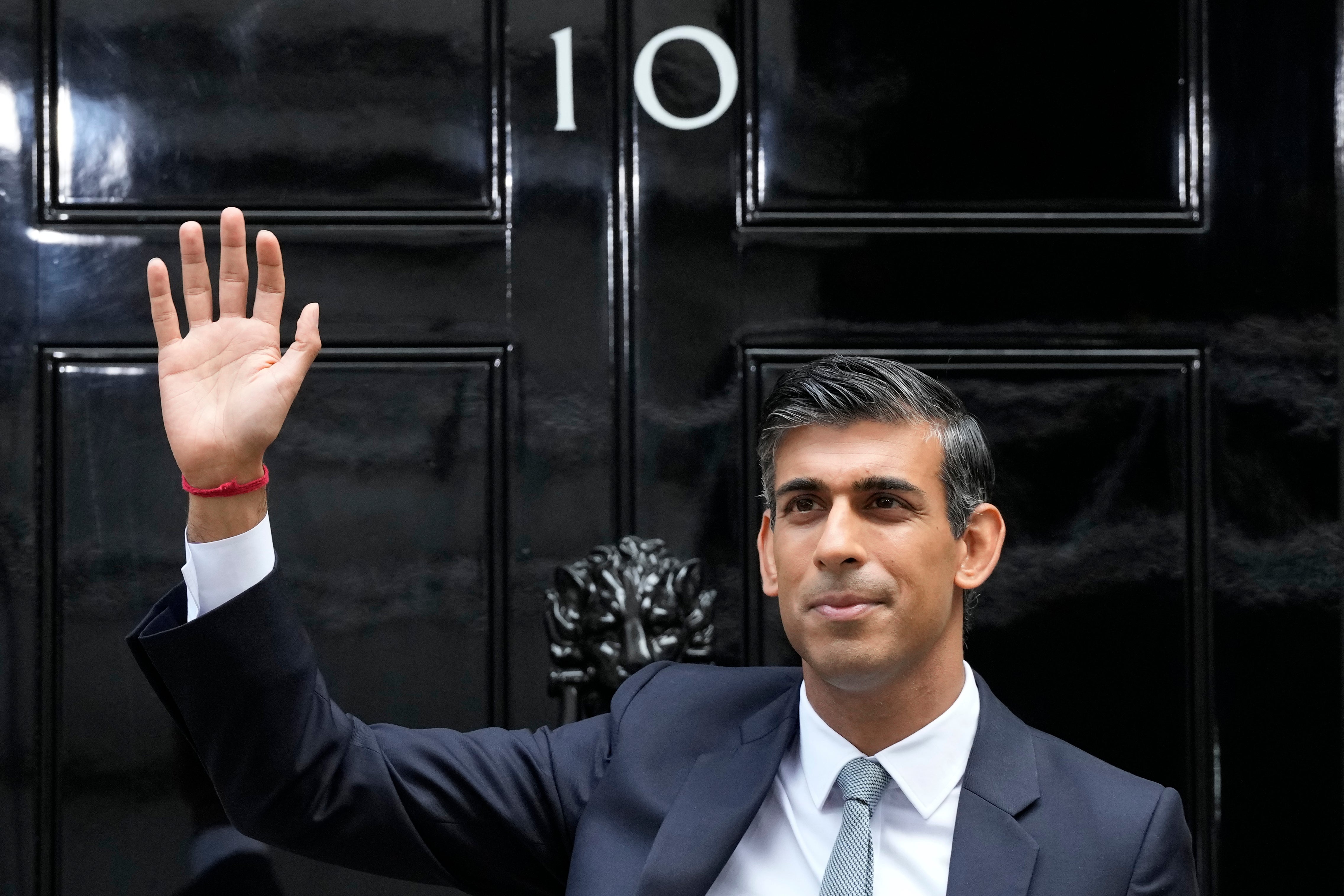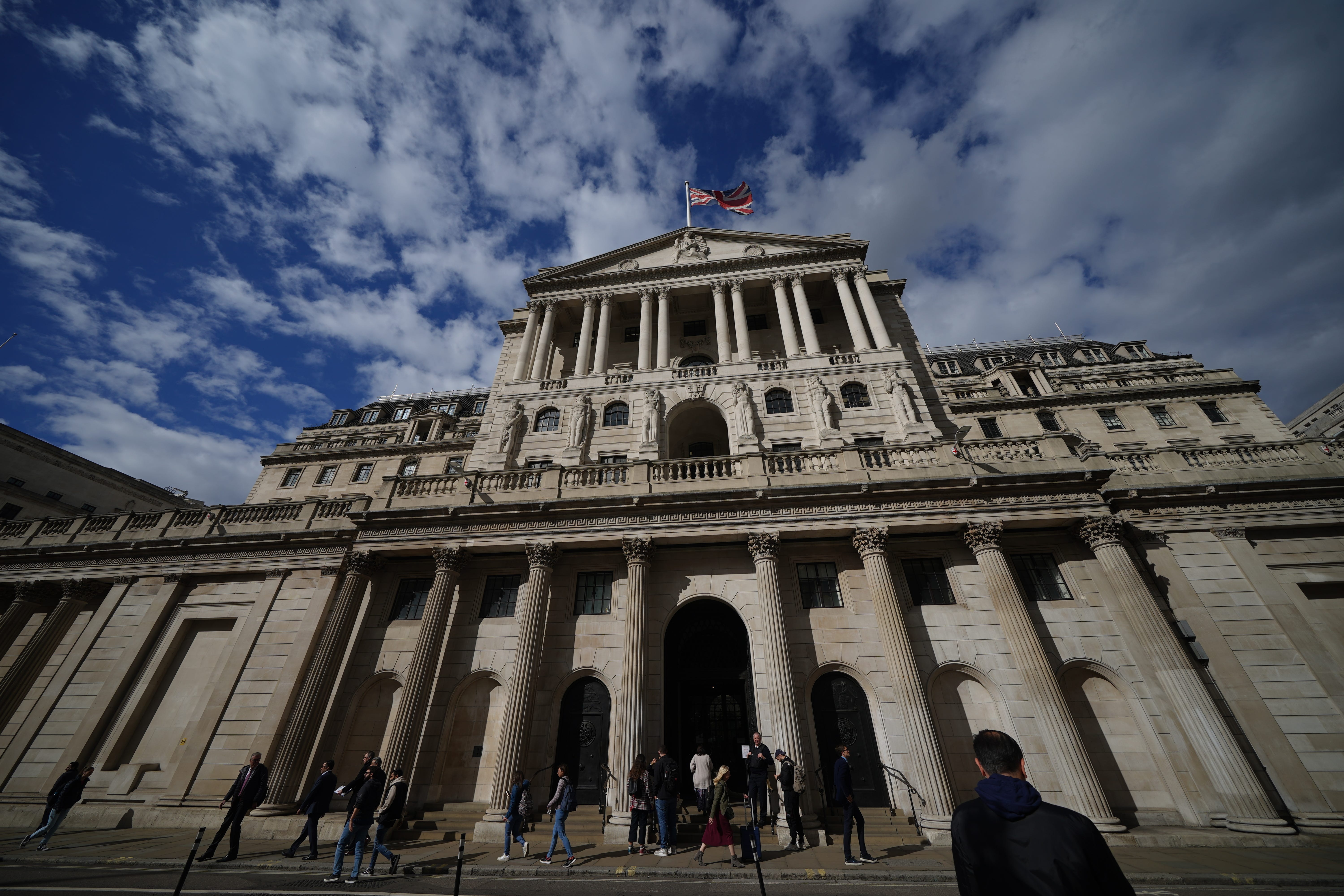
The pound has surged to its highest level since before Liz Truss’s disastrous mini-budget after Rishi Sunak replaced her as prime minister.
Sterling lifted 1.9 per cent higher to $1.149 against the US dollar after the former chancellor entered No 10 on Tuesday.
Meanwhile, 30-year gilt yields, which determine the interest that the government pays on some of its loans, were 0.1 percentage points lower at 3.65 per cent.
Liz Truss officially became the shortest-serving prime minister in history after King Charles III accepted her resignation, making way for Mr Sunak to take power.
The King was “graciously pleased to accept” her resignation after just 49 days in office when they met on Tuesday morning, Buckingham Palace said.
In his first address to the nation as prime minister, Mr Sunak warned the UK was in a “profound economic crisis” but said he would strive to fix “mistakes” made by his predecessor.
He also warned there are “difficult decisions to come”, in a clear signal that tax rises and spending cuts are on their way in chancellor Jeremy Hunt’s medium-term fiscal plan, due to be delivered next Monday.
Long-dated gilt yields, which were at the centre of the firestorm that scorched markets, have almost returned to where they were before the release of the mini-Budget on 23 September, reflecting a greater degree of confidence among investors.
Investors are betting that former chancellor Mr Sunak will restore credibility following Ms Truss’s disastrous time in office. Mr Sunak has kept Jeremy Hunt as chancellor, giving further stability to the markets.
UK mortgage rates remain close to highs last seen during the 2008 financial crisis, however, as the country receives its third prime minister in seven weeks.
The average two-year fixed-rate loan dipped slightly to 6.54 per cent this morning after last week breaching 6.65 per cent for the first time since August 2008.

The average five-year fixed-rate deal also fell to 6.4 per cent but remains at its highest since November 2008, according to data from Moneyfacts.
The sharp rise in mortgage costs will be one of the key issues to address for Mr Sunak as he takes over from Ms Truss. The jump is starting to take its toll on house prices and is piling more pressure on strained household budgets.
“The fall in UK gilt yields does suggest one thing and that is we will probably see a Budget delivered next week,” CMC Markets chief strategist Michael Hewson said.
With gilt yields falling, the pound is likely to struggle for gains, “largely on the basis that the economic outlook for the UK economy remains grim,” he added.
Following Mr Sunak’s speech, Britain’s stock market continued to struggle, with the FTSE 100 trading near its lowest levels of the day. However, it rallied in the afternoon to close near flat on 7,013, a shade down by around 0.51 points.
This comes as the Bank of England‘s chief economist has said the country’s economy might have benefited if “other institutions” had respected the UK’s institutional framework in recent weeks.
Huw Pill made the veiled swipe at the government as he also lauded cooperation between the central bank and the Office for National Statistics (ONS) at a speech in London.

It came days after the deputy governor of the Bank, Sir Jon Cunliffe, told MPs that the government did not fully brief the Bank on its mini-Budget and sweeping tax-cutting plans before it was unveiled.
Subsequent concerns over the large borrowing required accelerated a sell-off in the bond market and a slump in the pound to a record low against the dollar.
The financial turmoil led to the appointment as chancellor of Mr Hunt, who has outlined plans to reverse many policy decisions from the mini-Budget.
Mr Pill indicated on Tuesday that the government and other institutions should take a lead from the Bank‘s relationship with the ONS.
“That is a model for how UK macro-policymakers should respect the institutional framework when they interact with one another,” he said.
“In my view, we might have benefited in recent weeks if the interactions amongst other institutions had followed that pattern.”
The chief economist is one of the nine-strong Monetary Policy Committee at the Bank who will meet next week to decide the latest decision on interest rates.






